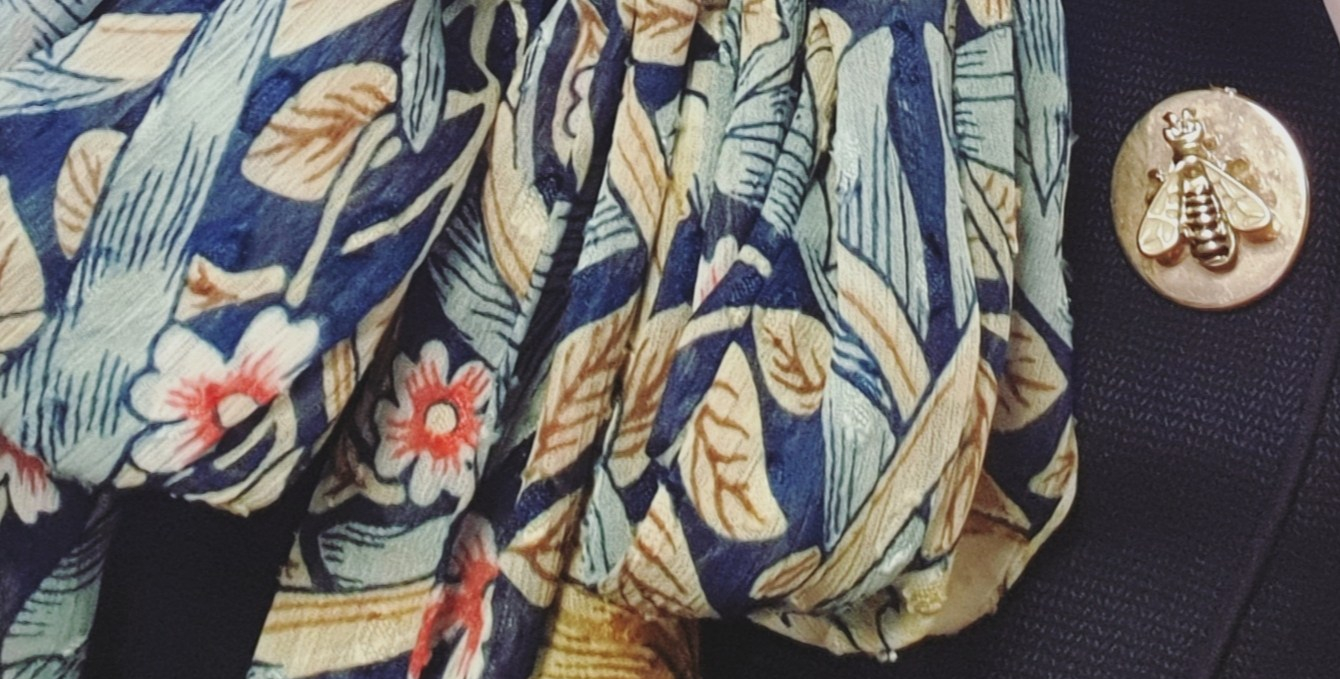
I remember when, a wide-eyed young cataloger (this was about three years ago), I was asked by my colleagues Siska and Marie – then in the process of capturing the staff’s thoughts on our current library systems – to list things I wished it were possible to do in our ILS Sierra. In response to many of the things I pointed out, I was informed that the functionality I requested actually exists – we just don’t use it. One of the main lessons I took away from that experience was the importance of articulating my assumptions and ideas, so that others can challenge, confirm or make them better.
The past months have provided plenty of opportunity for me to do just that. From a three day working meeting in Amherst with our fellow EBSCO beta partners, via the annual meeting of the EBSCO Systems Nordic User Group which Chalmers had the pleasure of hosting in early April, to the German FOLIO days in Bremen. April also saw the birth of the FOLIO Implementers interest group, which meets virtually every week to discuss challenges of and strategies for implementing FOLIO.
Common to all of these meetings is that they provide the opportunity to share experiences and ideas, inspiring you to think beyond your own horizons, and to develop and sustain that invaluable network of people – with names and faces – that you know you can get in touch with when you need help, advice, or someone to bounce ideas with. Keep reading to learn more about how we experienced this at the EBSCO beta meeting and at the German FOLIO Days.
Meeting the EBSCO betas in Amherst, MA
In late March, my colleague Lari and I spent three productive days getting to know and working together with colleagues from the libraries at University of Alabama and the Five Colleges in Amherst. Like Chalmers, these libraries are implementing FOLIO as EBSCO beta partners, with hosting, implementation and support services from EBSCO. Hosted by the 5 Colleges and organized by EBSCO’s team of implementation consultants, the meeting included many interesting discussions and quite a bit of hands-on work.
One day of the meeting was spent going through each library’s existing feature prioritizations in small groups (e.g. resource access, ERM). The slightly daunting task of expressing your library’s requirements by ranking features (needed to go live, needed later, not needed) in FOLIO’s issue tracking system JIRA is something every early FOLIO implementer has, or will very soon, come into contact with. It’s one of our primary tools for helping the project decide which features need to be developed first.
At Chalmers, planning to go live in 2019, we have already reviewed our rankings several times to make sure they properly reflect our actual needs. Still, discussing them in new constellations can give new insights: it forces you to go back and explain, maybe reexamine, those assumptions and familiar habits that underlie your decisions. Which features do we really need to provide good service to our patrons, which ones to recreate the workflows we have in our current ILS:s, and which ones because we simply haven’t thought of other possible (good) solutions that exist? And which are those features that will make us think of FOLIO as a really good system? These are excellent questions to discuss with fellow implementers.
At the end of that day, we could all be very proud that, defying belief, we had actually made it through all the features and refined our prioritization of them.
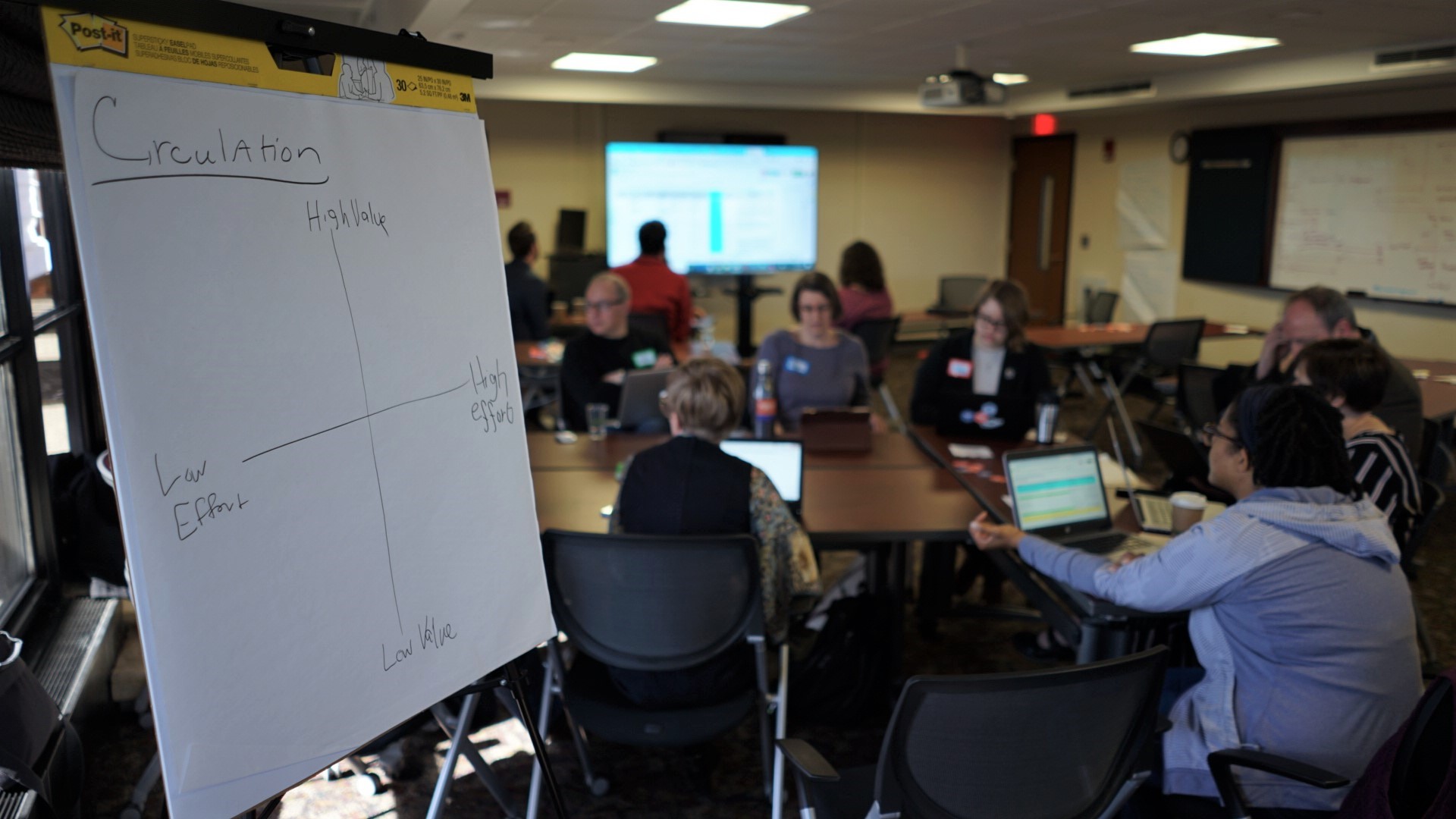
Feature prioritization in action. (Photo by Theodor Tolstoy)
Among the many interesting implementation topics we touched upon during these three days, I found it particularly valuable share the other betas’ experiences with and ideas regarding how and when to talk about FOLIO with the general staff. When is it fun and exciting, and when unnecessarily unsettling, to see a system in development? How do we best leverage curiosity and deal with legitimate concerns? How does training to prepare for go-live differ from training to keep up to date and to foster an atmosphere of engagement and continued learning?
I found it very inspiring to hear about the communication activities at Five Colleges, which include a monthly FOLIO newsletter and open events where staff watch and discuss the FOLIO Forum webinars together. Their view has been that, when given the ability to stay informed and take part in the conversation, staff members can turn their concerns and ideas into involvement in the project.
At Chalmers, we have for the past months at several occasions invited library staff to come and, in a very informal and exploratory setting, try out some basic workflows in FOLIO. We’ve done this in small groups, through open invitations, and with at least two implementation team members present. The idea with these workshops is to give staff a chance to familiarize themselves with the system, while giving us great feedback on functionality and UI that we’re able to relay to the community. Seeing our colleagues test FOLIO with fresh eyes really has been inspiring and energizing as well as informative.
German FOLIO Days in Bremen
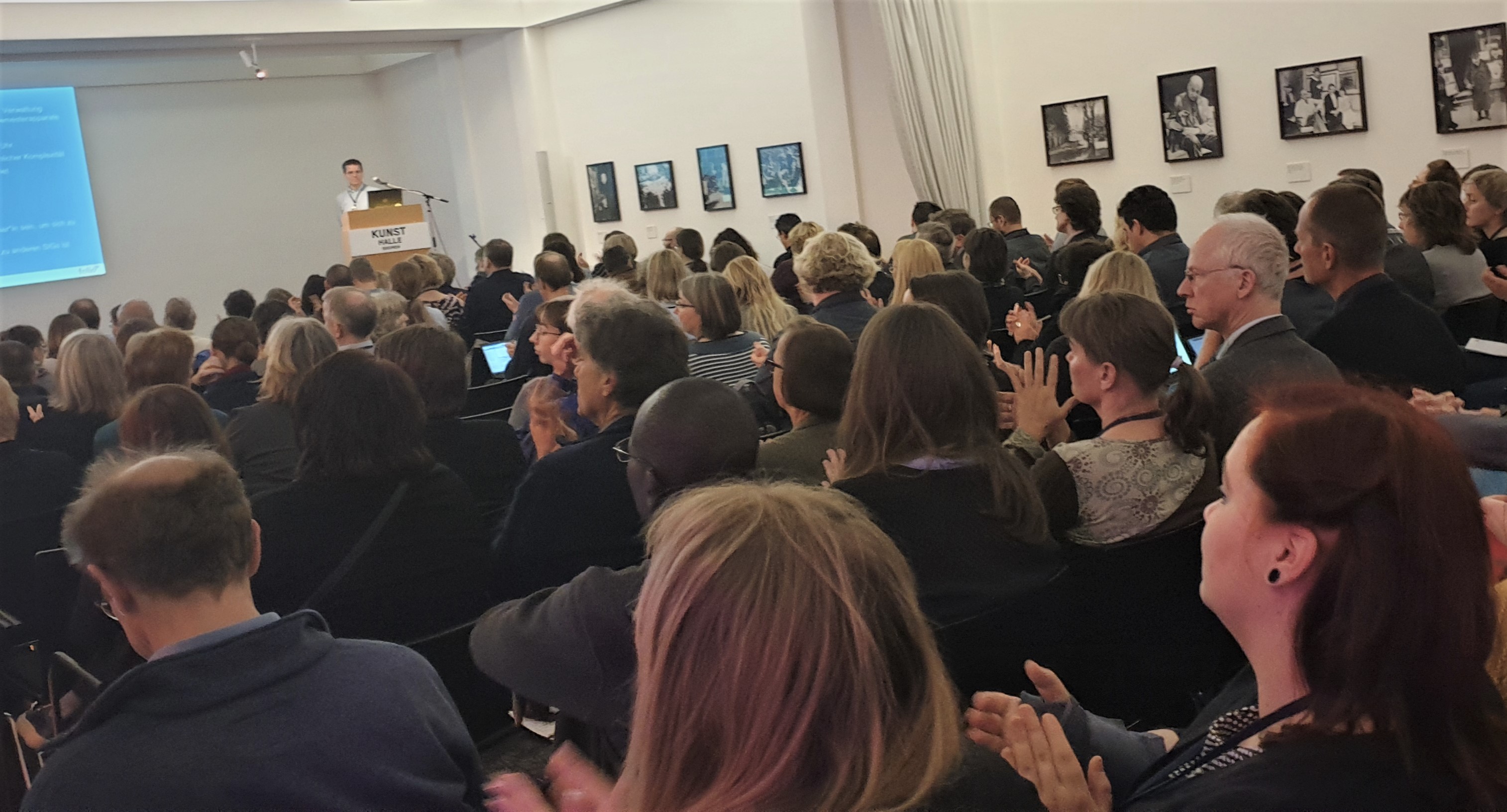
A captive audience at the German FOLIO Days.
In mid-April my colleague Marie and I went to Bremen for the German FOLIO Days, which we saw as a chance to get to know European members of the FOLIO community. It was great to see and speak to so many librarians and service providers from all over Germany, and some visitors from other countries, all curious about FOLIO. For Chalmers it is crucial to have a strong footing in the European community. We know that there are issue and interests particular to the European context, like the GDPR and localization and internationalization, that are vital both to us as European institutions and for FOLIO to be a project with a truly international identity and viability in the European market.
The German FOLIO Days programme included demos from several product owners, including fresh looks at acquisitions, MARC cataloging and electronic resource management. The German FOLIO community has played and continues to play a crucial role in the development of FOLIO’s electronic resource management functionality, and the first German implementers, among them the University of Bremen, are planning to start managing their electronic resources in FOLIO this fall. While Chalmers has been using different ERM systems for quite a while, Bremen are taking the leap straight from Excel sheets and e-mails to FOLIO’s integrated resource management modules. We look forward to sharing this journey with them, and with all our fellow FOLIO implementers.
Since neither Marie nor I speak German, we had an interesting time using online translation tools, the advantage of having a Germanic first language, and kind help from fellow conference participants to keep up with presentations and workshops in German. Finding the right balance between a common language and the language that attendants are most comfortable is a tough challenge – but it’s one that I’m actually happy to see us faced with, since it means that the community really is international. It might also have been partly thanks to this creative confusion of languages, paired with the openness of the people present, that I found myself feeling oddly comfortable in a workshop in German on loading user data into FOLIO using bash – another language I’m not quite fluent in yet.
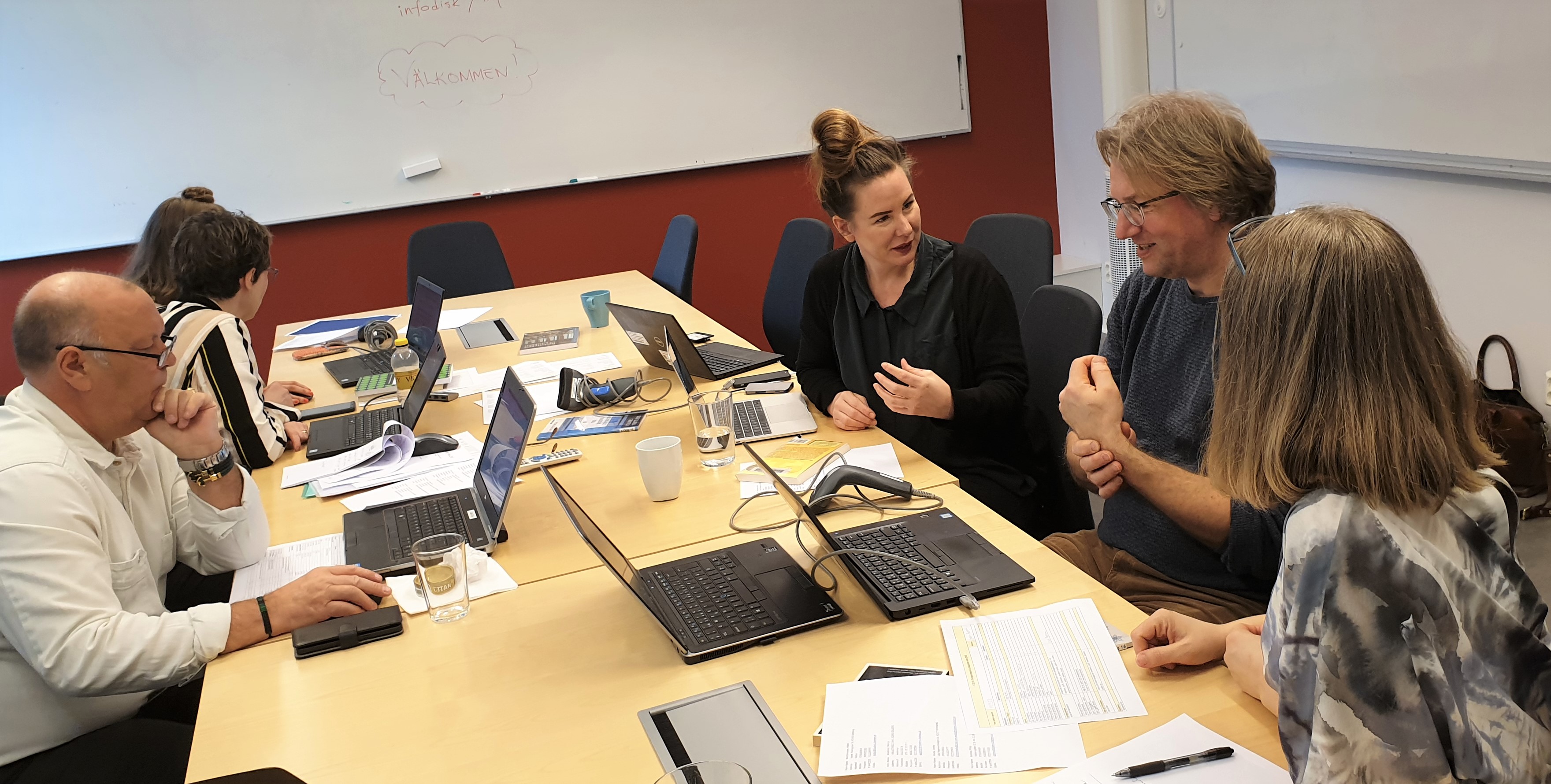
Chalmers staff testing FOLIO.
As you discuss workflows with fellow FOLIO implementers at the top of the (very high) W.E. Dubois library in Amherst, as you write to a fellow systems librarian to ask how they would tackle a certain issue, as you watch your colleague check out a book in FOLIO for the first time, something falls into place. It’s in these encounters, between people and between software and people, that all that hard work we put in – across time zones and countries and professions – gets a chance to try its wings and embark on its (initially bumpy) flight.
Working with FOLIO, at this moment in time, you get to experience these encounters of people and software and organizations and ideas in abundance. In the coming month I look forward to trying out the latest release of FOLIO in the Q 2.1 release bugfest, to delving further into data migration, and to talking FOLIO with international colleagues at the FOLIO working meeting in Washington DC and at ALA.
/Lisa Sjögren












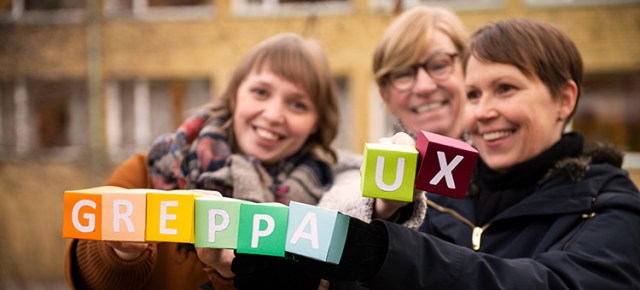
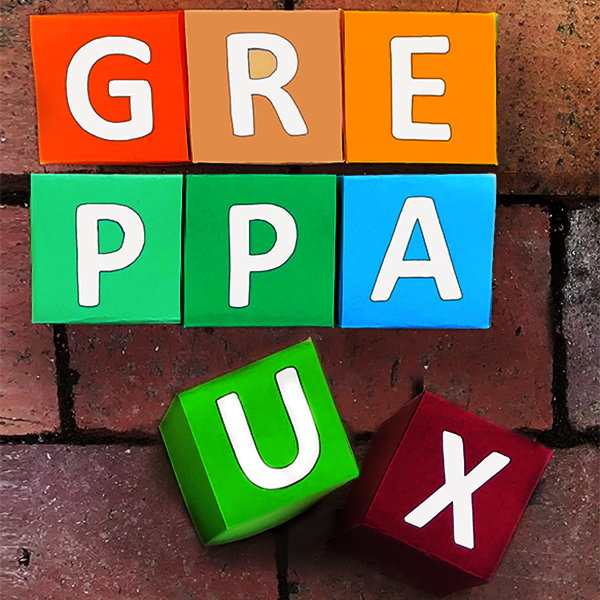 Kristin Olofsson tycker att exemplet med att göra korta filmer på en användargrupp är en bra demonstration på hur UX kan fungera i praktiken – lätt gjort, och det tog knappt någon tid i anspråk. Hon har arbetat med UX-metoder i mer än tio år. Under de åren beskriver hon det som att utvecklingen inom UX har gått från att fokusera på gränssnittstänkande till ett mer holistiskt synsätt, att titta mer på hela resan och kontexten man är i.
Kristin Olofsson tycker att exemplet med att göra korta filmer på en användargrupp är en bra demonstration på hur UX kan fungera i praktiken – lätt gjort, och det tog knappt någon tid i anspråk. Hon har arbetat med UX-metoder i mer än tio år. Under de åren beskriver hon det som att utvecklingen inom UX har gått från att fokusera på gränssnittstänkande till ett mer holistiskt synsätt, att titta mer på hela resan och kontexten man är i.
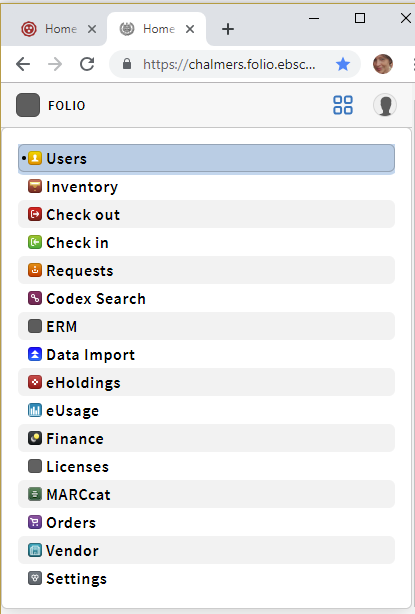
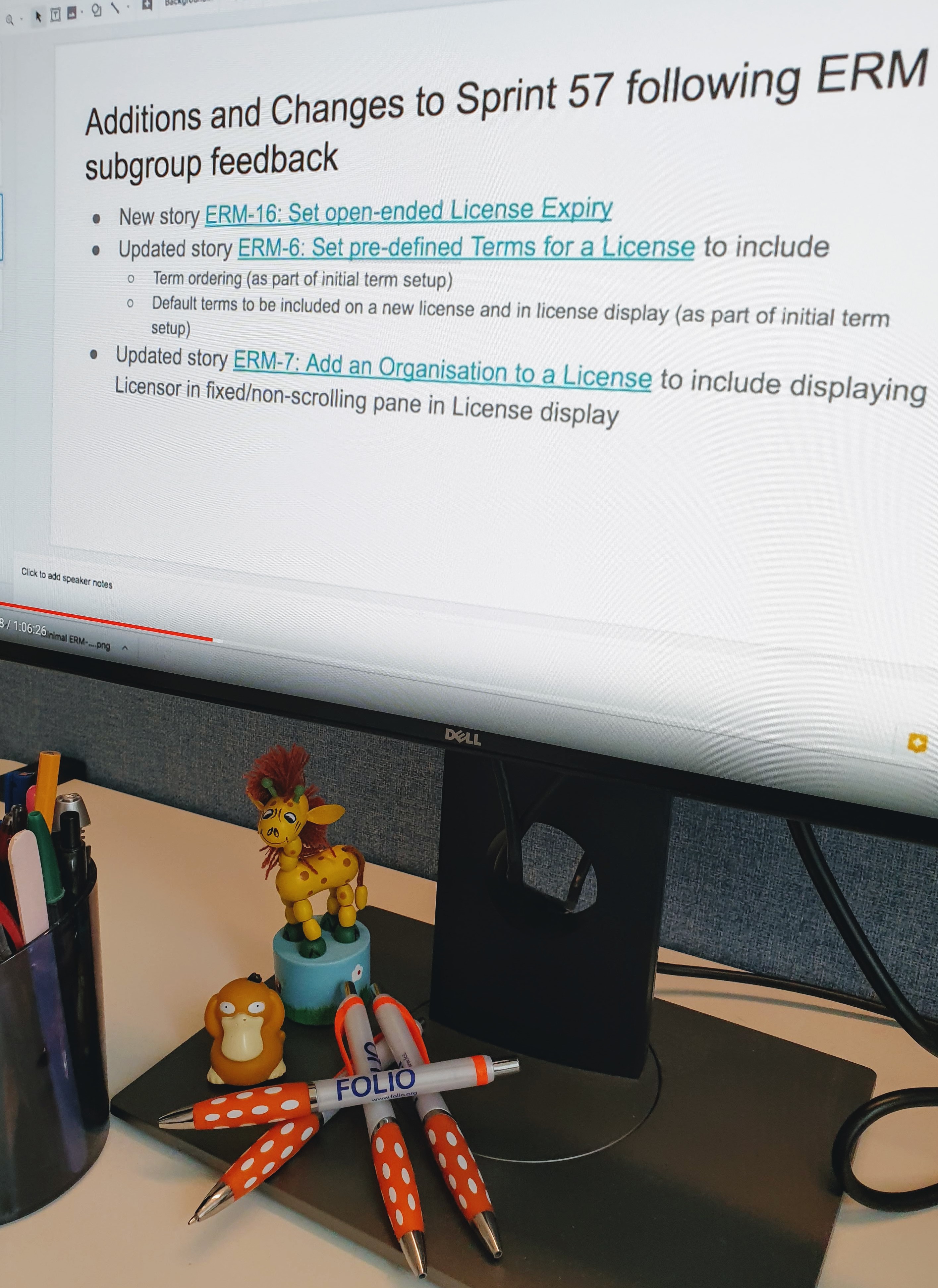

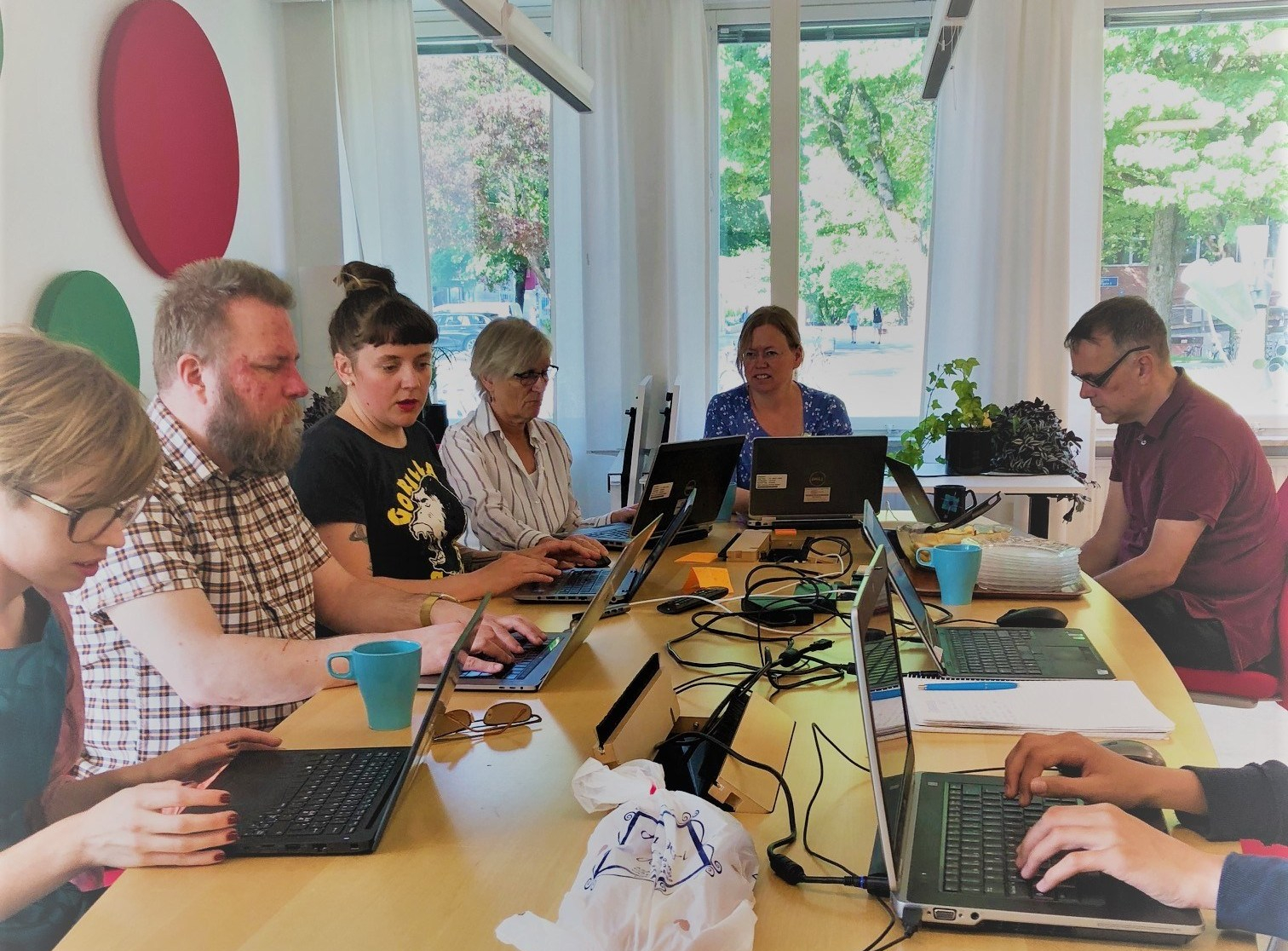
 So there we are. From that first workshop in January where we were just starting to figure out our part in the FOLIO project and the potential FOLIO holds for us, through a fairly harmonious implementation of EDS, great encounters and conversations with the FOLIO community, countless discussions of our feature requirements, and some interesting discoveries made while cleaning our catalog data, we have had an intense, challenging and exciting year.
So there we are. From that first workshop in January where we were just starting to figure out our part in the FOLIO project and the potential FOLIO holds for us, through a fairly harmonious implementation of EDS, great encounters and conversations with the FOLIO community, countless discussions of our feature requirements, and some interesting discoveries made while cleaning our catalog data, we have had an intense, challenging and exciting year.